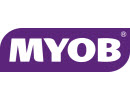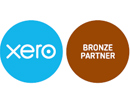There are multiple sharing economy websites and apps operating in Australia. The people who provide goods or services through any of them need to consider how GST and income tax apply to their earnings.
What is the sharing economy?
The sharing economy connects buyers (users) and sellers (providers) through a facilitator who usually operates an app or a website.
Popular sharing economy services include:
- renting out a room or a whole house or unit for a short-time basis eg Airbnb
- providing taxi travel services (called ‘ride-sourcing’) for a fare (eg Uber)
- providing personal services, such as creative or professional services like graphic design, creating websites, or odd jobs like deliveries and furniture assembly
- renting out a car parking space.
- Renting out a room is rental income
- Money your clients earn from renting out a room in their house is rental income. This applies to rooms rented by traditional means or through a sharing economy website or app.
- Your client can only claim expenses related to the part of the house they rent out and you need to apportion the expenses accordingly. However, they can claim 100% of any fees or commissions charged by the rental facilitator or administrator.
- Capital gains tax may also apply if they sell property used to generate rental income.
Providing taxi travel services through ride-sourcing and your tax obligations
For GST purposes, the word taxi means a car (vehicle) made available for public hire that is used to transport passengers for fares.
State and territory laws regulating transportation of passengers contain specific definitions of the term taxi. It is possible for a vehicle to be a taxi for GST purposes, but not for state and territory regulatory purposes.
This information clarifies how the tax laws we administer apply to ride-sourcing.
We express no view about whether ride-sourcing vehicles are taxis within the state and territory specific definitions, or on the legality of ride-sourcing arrangements.
What is ride-sourcing?
Ride-sourcing is an ongoing arrangement where:
- you (a driver) make a car available for public hire
- a passenger uses, for example, a website or smart phone app provided by a third party (facilitator) to request a ride
- you use the car to transport the passenger for payment (a fare) with a view to profit.
Ride-sourcing arrangements can be enabled by a technology platform maintained by a third-party facilitator. Typically, a website or mobile device application is used to facilitate a transaction between a driver and a passenger.
Ride-sourcing is one example of collaborative consumption in the sharing economy.









